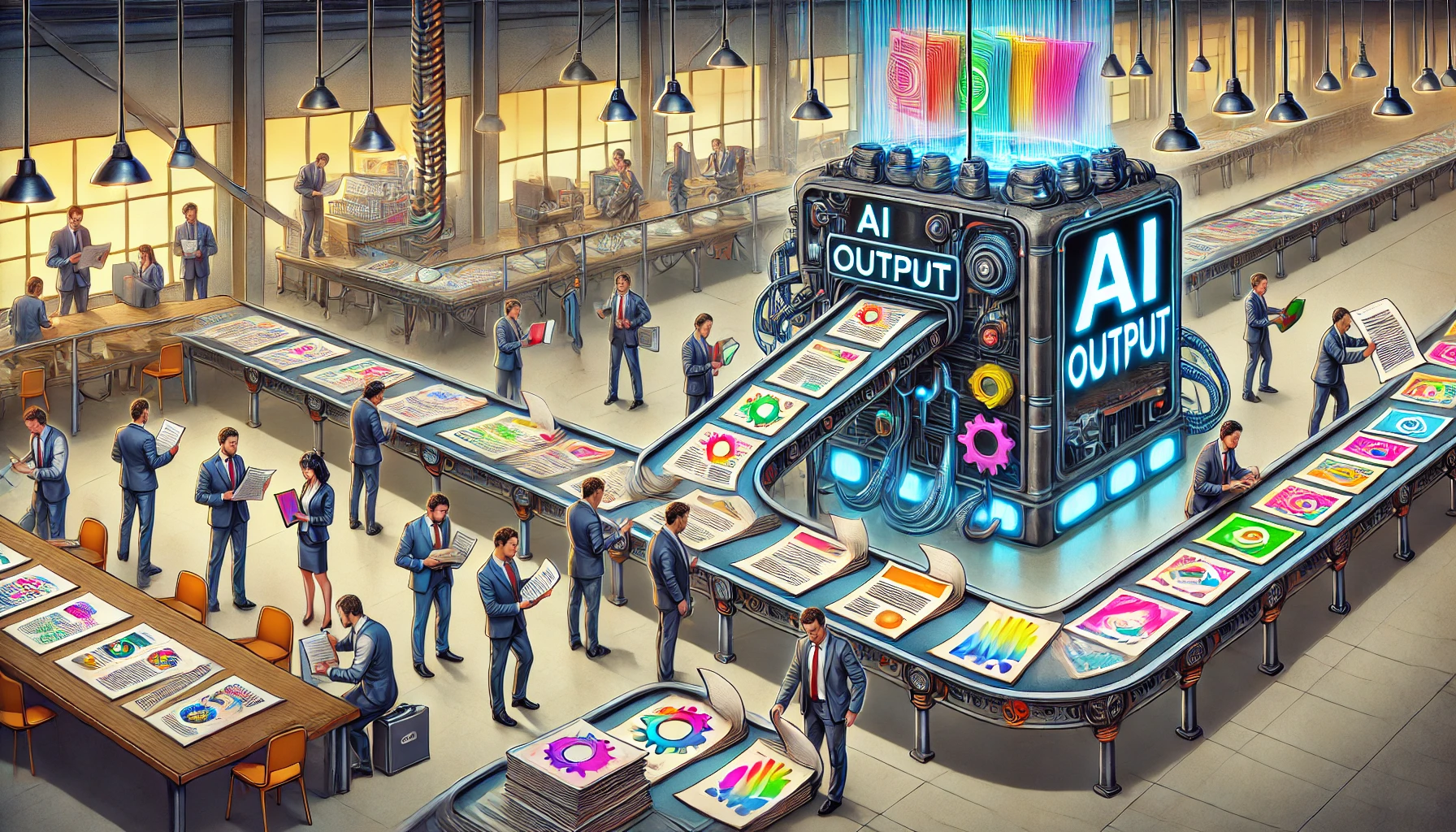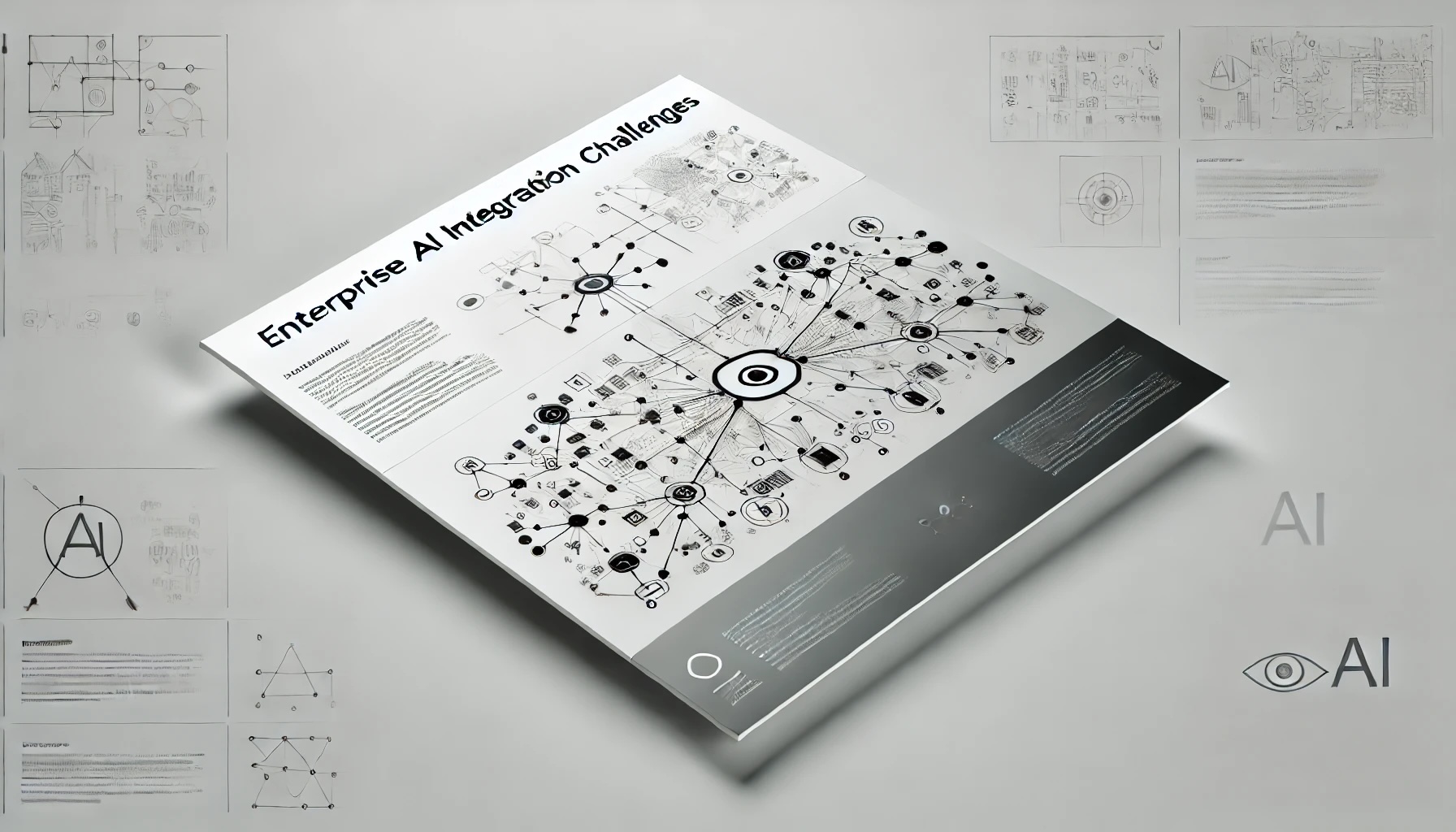Why Your Team's AI Outputs All Look Like Everyone Else's?
By Just Admin on 11/28/2024

Your team just spent six figures on AI tools, but let's face it – your outputs look exactly like your competitors'. Your employees they don't see a lot of benefits of using Copilot. Those AI-generated presentations? Could've come from any company. Those market analyses? Suspiciously similar to everyone else's. And those "unique" marketing materials? They have that unmistakable AI blandness that's flooding the internet.
Here's the truth that nobody's talking about: You don't have an AI problem. You have an implementation problem.
The Hidden Cost of Generic AI
Most teams are falling into a predictable trap. They sign up for premium AI services, give everyone access, provide basic prompt training, and expect magic. What they get instead is an army of users all generating the same vanilla outputs:
"Write a professional email..."
"Create a social media post..."
"Analyze this dataset..."
Sound familiar? Your team is using sophisticated AI like it's a fancy autocomplete, and you're paying premium prices for mediocre results.
Why This Is Happening to Everyone
This problem is more pervasive than most realize, and it's happening for three key reasons:
1. The Safety Net Effect: Teams implement rigid prompting guidelines to avoid mistakes, inadvertently crushing creativity and uniqueness in the process.
2. The Training Gap: Most AI training focuses on basic do's and don'ts rather than teaching people how to craft prompts that generate standout results.
3. The One-Tool Syndrome: Teams try to use a single AI solution for every task, forcing square pegs into round holes.
The Real Impact
This isn't just about aesthetics. Generic AI outputs are hurting businesses in measurable ways:
- Marketing content that disappears into the noise
- Customer communications that sound robotic and templated
- Data insights that lack depth and specificity
- Product ideas that could apply to any company in any industry
Breaking Free from AI Mediocrity
Forward-thinking teams are solving this in two ways:
1. Smart AI Integration
The traditional approach of subscribing to multiple specialized AI tools is burning through budgets. Smart teams are instead:
- Using unified platforms that connect to multiple AI providers
- Paying only for actual usage rather than per-seat subscriptions
- Maintaining flexibility to switch between providers as needed
- Creating role-specific interfaces while keeping infrastructure unified
2. Practical Prompting
Let's be real - nobody has time to craft the perfect prompt for every AI interaction. Successful teams are:
- Building pre-configured AI experts for common tasks
- Embedding context directly into their tools rather than relying on users to provide it
- Using interfaces that automatically enhance basic prompts
- Creating shortcuts and templates that "just work"
The Next Wave: Contextual AI
The future isn't only about having the latest AI model – it's also about having a flexible, cost-effective way to access and control these models. Progressive teams are moving away from both the "one AI for everything" approach and the "subscription for every use case" trap. Instead, they're building unified platforms that:
- Fit naturally into existing workflows
- Understand team context
- Connect with internal knowledge
- Adapt to different needs
The Bottom Line
If your AI outputs look generic, it's not the technology that's limiting you – it's your approach. The teams gaining real advantages from AI aren't necessarily using better models – they're using their AI tools more effectively through specialized implementation and smart prompting strategies.
The question isn't whether to use AI – that ship has sailed. The question is whether you'll continue getting generic outputs from premium AI tools, or evolve your approach to deliver results that actually stand out.
Are your AI outputs as unique as your team? If not, it's time to rethink your strategy.

